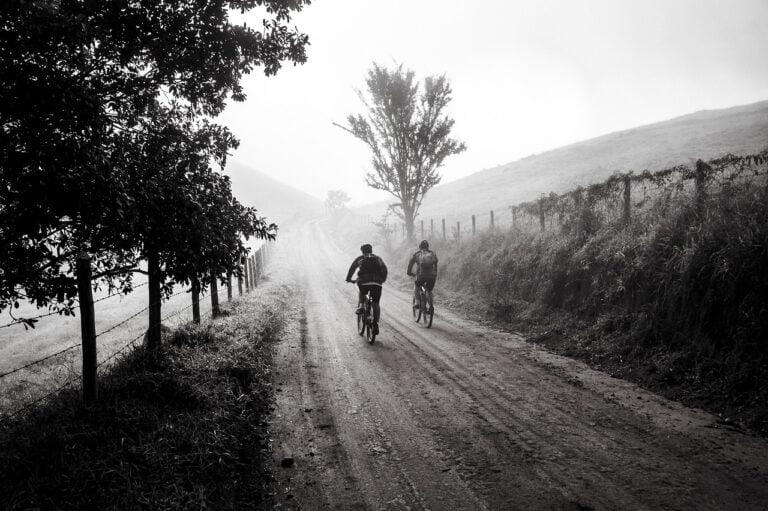What Is Urban Backpacking?
Urban backpacking is a dynamic and immersive approach to discovering cities, characterized by a spirit of spontaneity, cultural curiosity, and a willingness to venture off the beaten path. It's about ditching traditional tourist routes for local neighborhoods, markets, and cultural hotspots, and embracing the unknown. With a focus on mobility, versatility, and adaptability, urban backpackers uncover secrets and surprises that lie beyond the tourist traps. As they navigate complex urban environments, they develop a deep connection with the city's rhythm and pulse. And as they wander, they uncover the hidden gems that make each city truly unique, waiting to be investigated.
Defining Urban Backpacking Style
Embracing a unique fusion of freedom and flexibility, urban backpacking style is characterized by its emphasis on mobility, versatility, and a willingness to navigate the uncharted territories of city streets and hidden gems. This approach to travel eschews traditional tourist routes, instead opting for immersive experiences in local neighborhoods, markets, and cultural hotspots. Urban backpackers prioritize spontaneity, often ditching itineraries in favor of serendipitous discoveries. By blending urban exploration with the thrill of the unknown, this style of travel fosters a deep connection with the city's rhythm and pulse. As a result, urban backpackers develop a unique perspective on the urban landscape, uncovering secrets and surprises that lie just beyond the beaten path.
As urban backpackers traverse the labyrinthine streets and hidden corners of cities, they must develop a keen sense of situational awareness, adeptly reading cues from their surroundings to uncover the most authentic and offbeat experiences. This involves honing essential skills for city wayfinding, which are critical to revealing the full potential of urban backpacking.
- Map literacy: Understanding how to read and traverse city maps, both physical and digital, is essential for finding hidden gems and avoiding tourist traps.
- Cultural acuity: Developing an appreciation for local customs, traditions, and etiquette enables urban backpackers to engage with cities on a deeper level.
- Adaptability: Being prepared for the unexpected and able to think on one's feet is indispensable for piloting the complexities of urban environments.
Urban Backpacker's Packing List
When venturing into the urban jungle, every item in an urban backpacker's arsenal must serve a deliberate purpose, making each piece of gear a crucial component in the pursuit of authentic city experiences. A well-curated packing list is essential to traversing the urban landscape. Essentials include a comfortable backpack, durable clothing, and sturdy footwear. A portable power bank and universal adapter guarantee devices stay charged. A reusable water bottle, travel-sized toiletries, and a first-aid kit cater to personal needs. A guidebook, map, or travel app provide valuable insights, while a portable lock and money belt secure valuables. By packing smart, urban backpackers can focus on immersing themselves in the city's rhythm, rather than worrying about logistical headaches.
Finding Affordable City Accommodations
Resourcefulness is key to uncovering affordable city accommodations that won't break the bank, allowing urban backpackers to allocate their budget to more immersive experiences. To find affordable options, consider the following:
- Hostels and guesthouses: These shared spaces offer a social atmosphere and affordable rates, often with amenities like free Wi-Fi and communal kitchens.
- Couchsurfing and house-sitting: Stay for free in a local's home or take care of their property in exchange for accommodation, providing a unique cultural experience.
- Budget-friendly hotels and Airbnb: Look for discounted rates, especially during the off-season, and opt for basic amenities to save on costs.
Eating Like a Local on Budget
Frequently, urban backpackers can indulge in authentic local cuisine without blowing their budget by exploring affordable eateries, food markets, and street stalls that are often hidden gems, serving up flavorful dishes at a fraction of the cost of touristy restaurants. To eat like a local on a budget, research beforehand to identify affordable options, such as hole-in-the-wall eateries, street food vendors, and local markets. Avoid touristy areas and opt for neighborhoods where locals dine. Be adventurous and try new dishes, but also be mindful of food safety and hygiene. Consider purchasing snacks from convenience stores or supermarkets to supplement your meals. By adopting these strategies, urban backpackers can savor the flavors of their destination without breaking the bank.
Staying Safe in Urban Environments
In the midst of urban excitement, staying safe requires a keen sense of awareness and adaptability, as even the most experienced travelers can fall prey to petty theft, scams, or worse in unfamiliar cityscapes. To mitigate these risks, it's essential to be proactive and take necessary precautions. Here are three key strategies to prioritize:
- Stay informed: Research your destination beforehand, staying up-to-date on local crime trends, areas to avoid, and cultural norms.
- Be mindful of belongings: Keep valuables secure, using money belts, hotel safes, or locked luggage storage when necessary.
- Trust your instincts: If a situation feels off or uncomfortable, trust your gut and remove yourself from the area or situation.



